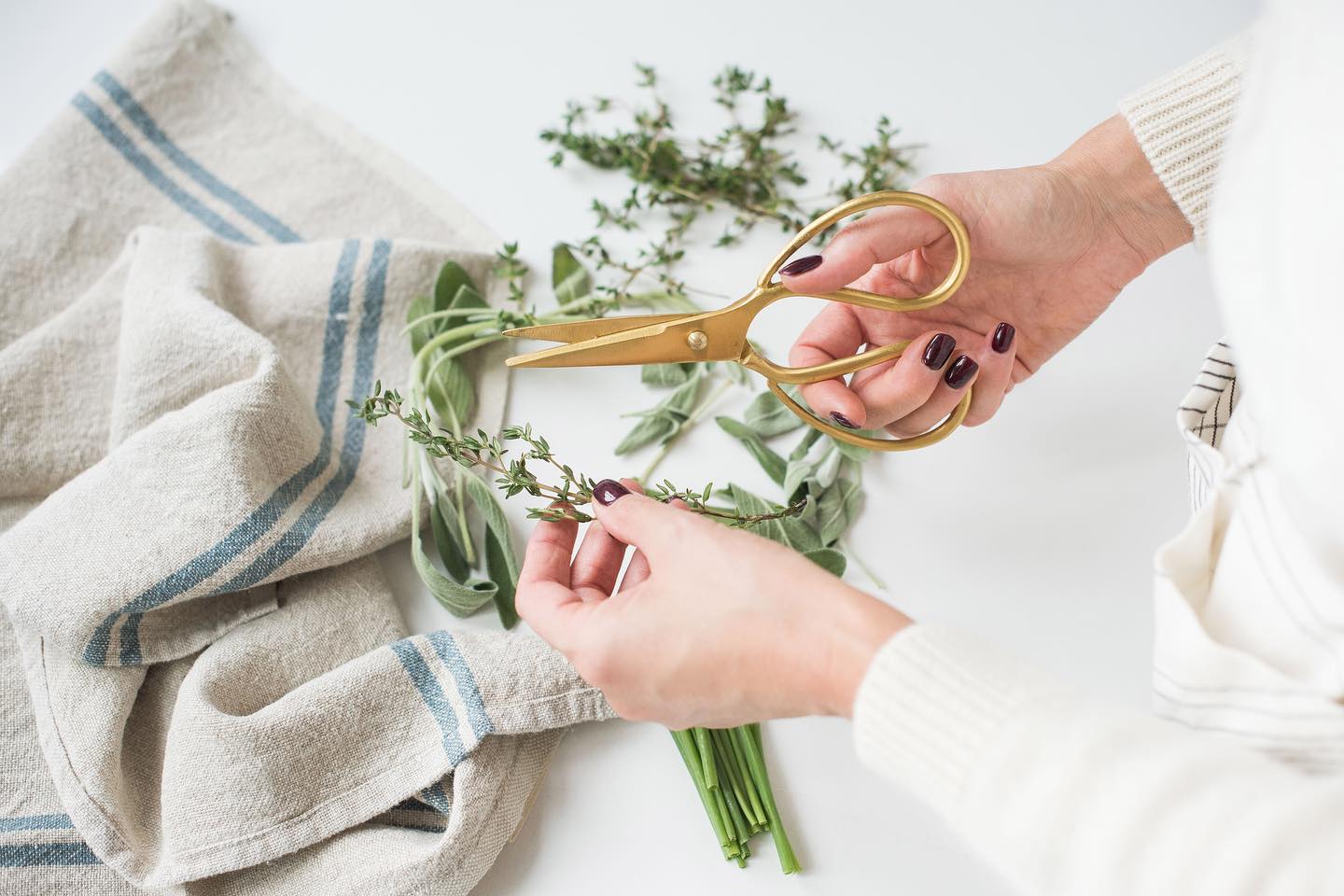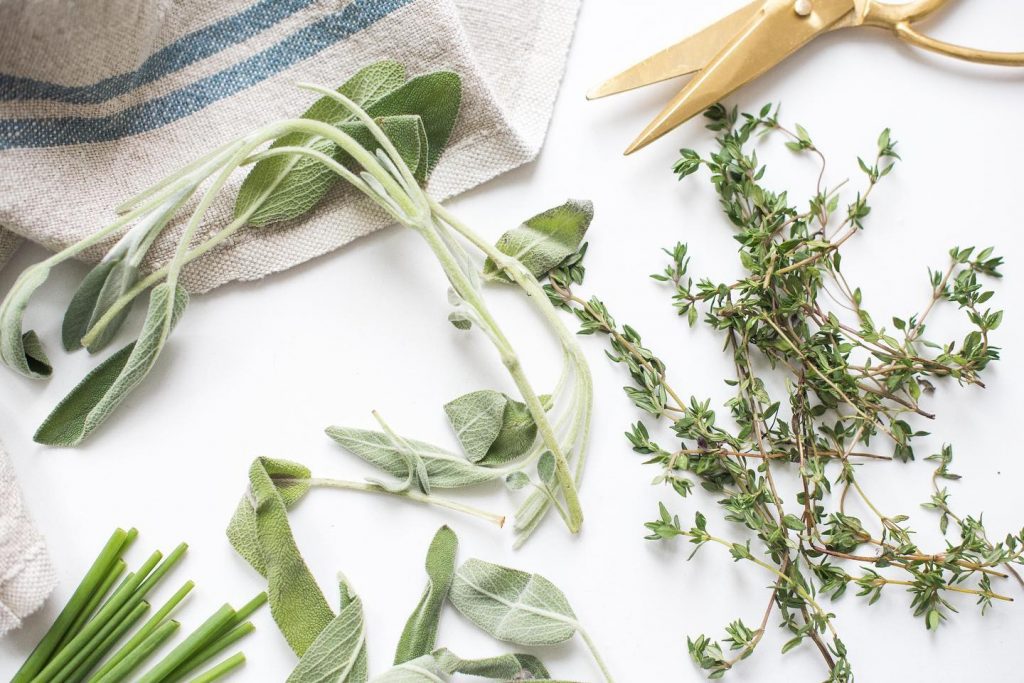Olive Tapenade


Fresh herbs have an amazing way to add flavour and nutrition to any dish. The benefits have been enjoyed by people around the world for centuries. And I hope after learning more about them, you’ll be inspired to add them liberally to your meals from salads, soups, and homemade burgers, to smoothies, desserts, and more.
Basil in not only the most well-loved herb in Italian cuisine, it is also the most commonly used in North America. Basil originated in India and was brought over to the Mediterranean through the ancient spice routes.
Just like spinach, basil is packed with Vitamin K, a crucial nutrient for calcium absorption to maintain strong bones. Basil is also high in bioflavonoids, antioxidants and volatile oils, which help prevent DNA damage and protect against diseases like cardiovascular disease and cancers. It is highly anti-inflammatory and can act like an adaptogen, meaning it helps the body cope during times of high stress.
Basil makes a great addition to soups, pasta sauces, fresh salads, fish, and seafood dishes; I love using basil to make fresh pestos too.
Dill has a long and ancient history in many countries as a culinary and medicinal herb. It helps to reduce menstrual cramps, lower cholesterol, manage symptoms of depression, and protect your cells against free radical damage.
With its deliciously fresh, citrus-like taste, dill works well in soups and stews, especially those with chicken. It also works well added to roasted vegetables and makes a delicious dipping sauce with yoghurt, lemon, and garlic.
Cilantro is the most commonly associated with Mexican cuisine, however it is believed to date back to ancient Egypt and originate in the Mediterranean. It is full of vitamin K; important not only for bone density, but also for brain health. Vitamin K helps to prevent neuronal damage and has been used to help treat patients with Alzheimer’s.
Cilantro is also well-known for its ability to bind with heavy metals in the body and promote detoxification. It helps to reduce anxiety, promote restful sleep, lower blood sugar levels, and prevent urinary tract infections.
It works well in stirfrys, guacamole, sprinkled over curry stews, and roughly chopped in salads.
Peppermint has such a calming, soothing scent. It’s bright flavour and spicy fragrance is a great addition to many dishes. It has been used for centuries to aid with upset stomachs, indigestion, and IBS symptoms. The concentrated essential oils extracted from peppermint leaves are great for relieving headaches and boosting concentration; as well as, treating symptoms of depression and fatigue, and preventing memory loss.
Peppermint’s scent helps to clear the throat and nasal passages during respiratory colds. It has fantastic anti-microbial properties and is packed with antioxidants. I love throwing a copy of leaves into my morning smoothie for a flavour and nutrient boost.
Parsley is one of the most versatile and easy-to-find fresh herbs. Like most herbs, it originated in the Mediterranean. With its clean and slightly peppery flavour, it works well in almost any dish. Parsley is high in free-radical-fighting flavonoids and antioxidants. It also acts as a natural diuretic helping to fight kidney stones, urinary tract infections, and gallbladder infections. It helps to reduce bloating and freshens the breath, hence why garlic and parsley are often used together. I love adding fresh parsley to stews, soups, salads, and finely chopping it into homemade burgers.
Rosemary is native to the dry, rocky areas of the Mediterranean, especially along the coast. But because it is extremely hardy and can withstand large fluctuations in temperature, it does well with almost anywhere. Its aromatic flavour, often described as lemon-pine, pairs perfectly with roasted chicken, potatoes and root vegetables.
Rosemary has unique compounds and essential oils which provide excellent anti-inflammatory, anti-fungal, antibacterial, and antiseptic properties. Rosemary essential oil helps to improve memory and cleanse the air; while consuming the fresh herb helps to fight cancer, boosts immunity, soothes stomach ails, freshens breath, stimulates blood flow and relieves pain.
Oregano is widely used all over the Mediterranean. Its potent essential oil is one of the most powerful natural anti-bacterial oils, often used to prevent and treat upper respiratory tract illnesses, gastrointestinal infections like parasites, menstrual cramps, and urinary tract infections. When consumed, fresh or dried oregano provide antioxidants to boost the immune system, and anti-inflammatory and anti-microbial properties to prevent coughs, colds, and flu. Sprinkle chopped oregano over salads, meat, poultry, fish, and pasta dishes.
The easiest way to get your hands on fresh herbs is to grow them yourself. Herbs need very little space and require very little tending to; they’re simple happy to serve up their bounty almost year-round. Just be sure to put them in a spot where they’ll get plenty of natural light with mild temperatures.
xo, Karlene
